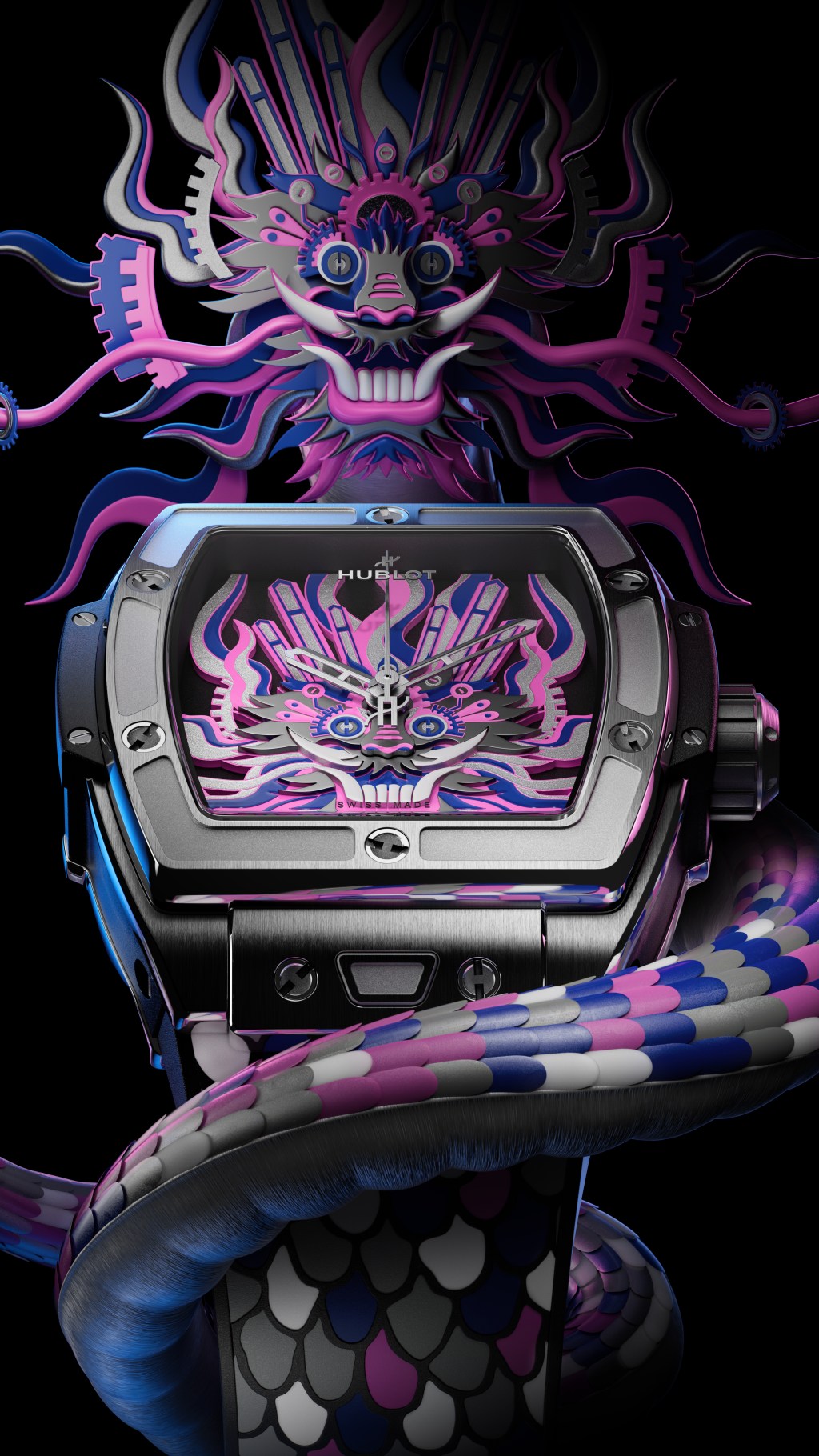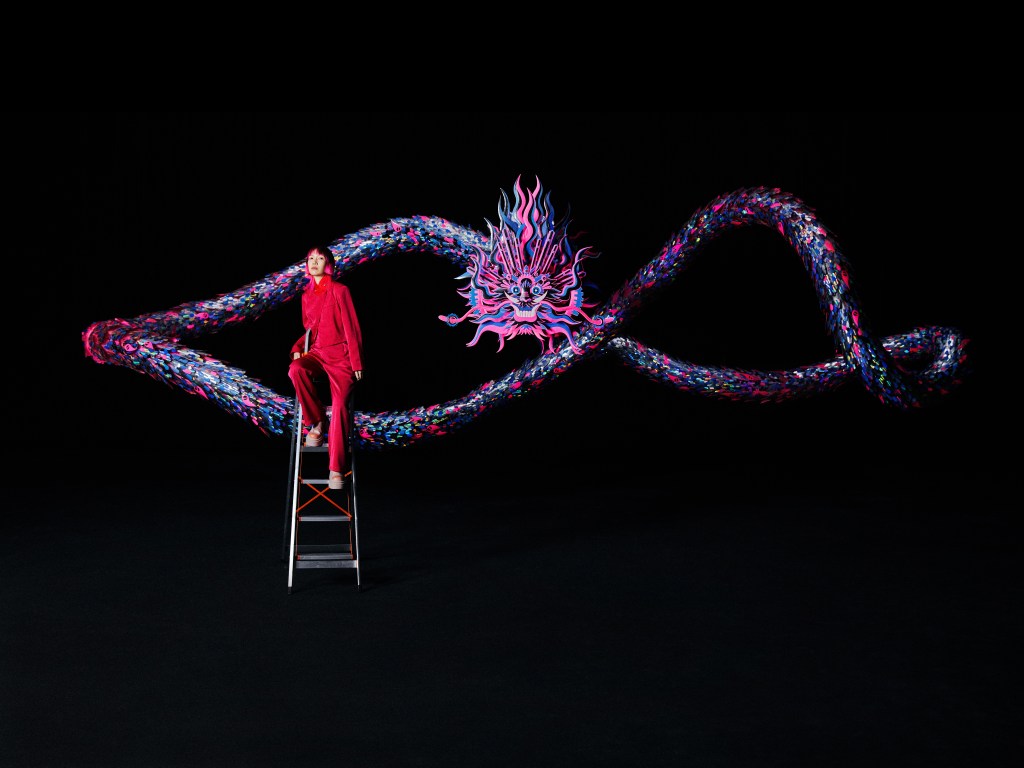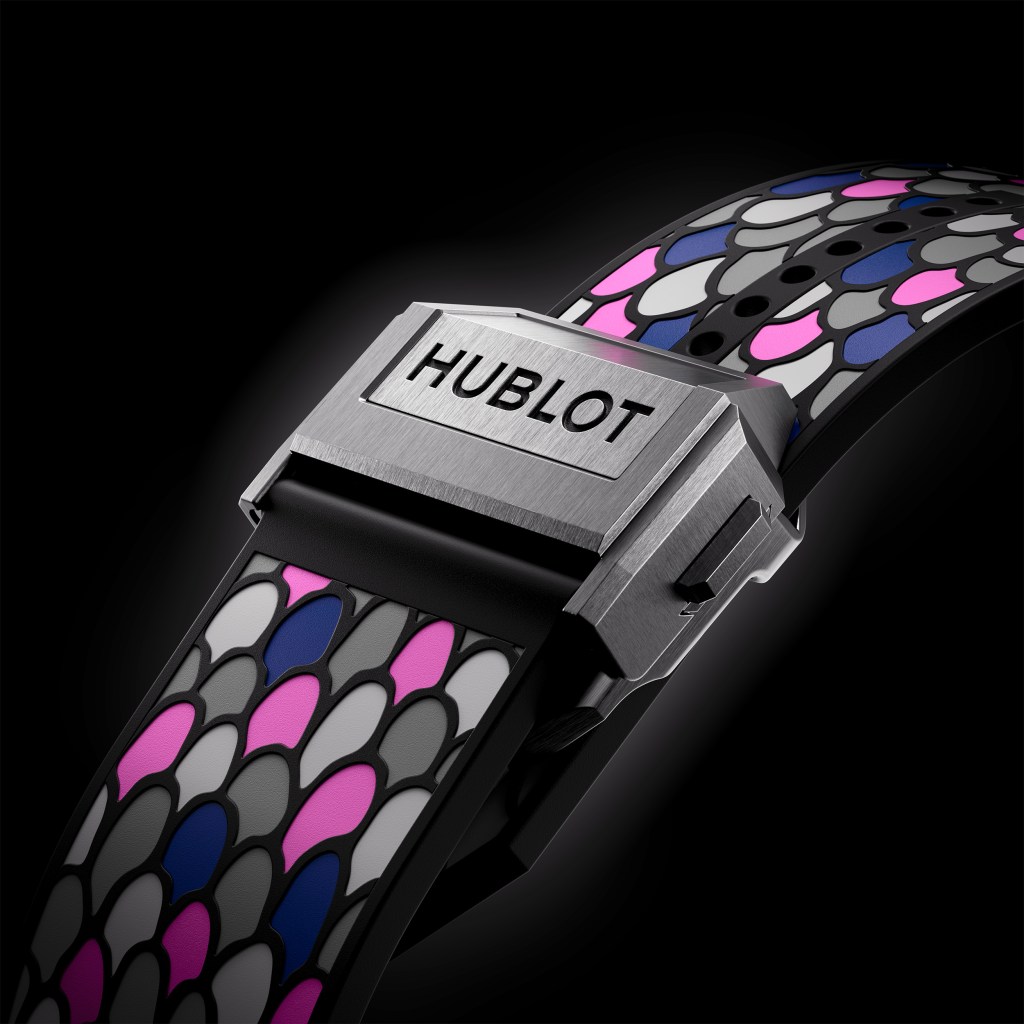Hublot’s Latest Spirit Of Big Bang Watch Celebrates Year Of The Dragon
The $30,000 titanium timepiece features a striking interpretation of the mythical Chinese creature.
While IWC Schaffhausen is celebrating the Year of the Dragon with a bold burgundy chronograph featuring a gold-plated interpretation of the mythical creature, fellow luxury Swiss watchmaker Hublot is channeling the Chinese totem with a more avant-garde approach.
The starting point is the Spirit of Big Bang, which features a barrel-shaped 42 mm titanium case in contrast to the mainstay Big Bang collection’s circular cases. But instead of merely adding a few dragon motifs, Hublot sought to added cultural authenticity by collaborating on a design with Chen Fenwan, a virtuosic talent in the discipline of Chinese paper cutting.

The artform has been practiced for over 2,000 years and joined the Representative List of the Intangible Cultural Heritage of Humanity in 2009. Not to mention, paper cutting is an especially apt inspiration for a project celebrating 2024, considering that this is the year of the wood dragon.

Fenwan first created a multi-layered cut-out paper sculpture of the traditional Chinese dragon Loong, featuring the eyes of a prawn, the horns of a deer, the mouth of a bull, the nose of a dog, the whiskers of a catfish, the mane of a lion, the long tail of a snake, the scales of a fish, and the claws of an eagle.

Hublot then transposed the paper-cut design into a multi-level dial construction, overlaying a base panel with several levels of appliques. The dragon’s head is made up of five layers that alternate between hands, wheels and H-shaped screws, all of which combine to create a striking 3D visage of an eastern dragon. Meanwhile, the rubber strap is adorned with pink, gray, purple, blue and white vulcanized rubber dragon scales—each hand-applied over an eight-hour process.
Limited to 88 examples, the Hublot Spirit of Big Bang Titanium Dragon is available to purchase for $29,500.
